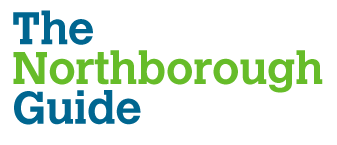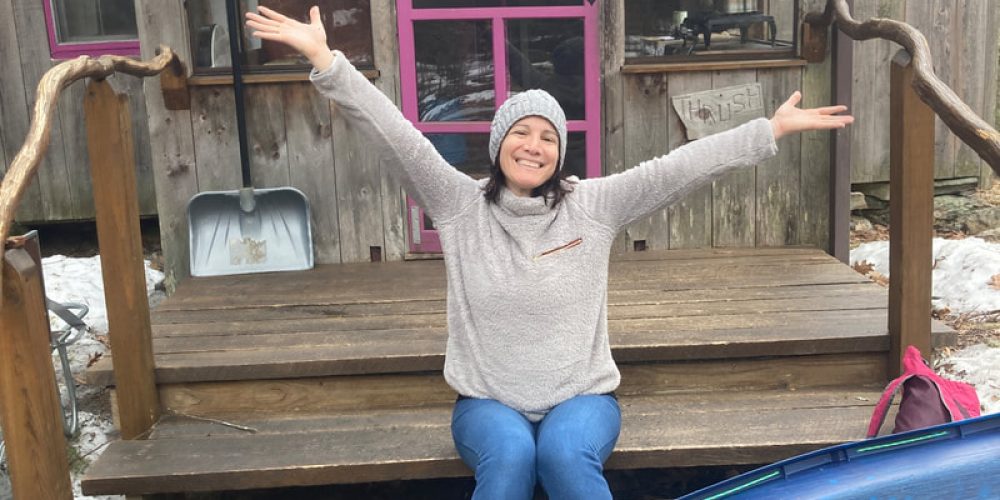This past weekend I had the great, good fortune to go away for the weekend on a winter getaway with a friend of mine. It’s an amazing ‘off the grid’ retreat where we hike in with all of our stuff, to a beautiful cabin to spend the weekend. With only wood heat and candle light, the stillness and silence is so deep. We’ve gone every winter for the past three years, but this year felt different. Without even realizing how much I needed some time to let go, release and nourish my spirit, I started to fully grasp how much I had been ‘holding on’ throughout the craziness of this past year.
Between the pandemic itself, three kids schooling from home and managing a business during covid, to say that this year has been a lot, would definitely be an understatement. Now don’t get me wrong, I’m very aware of how blessed I have been throughout all of this. Our family remaining employed, healthy and safely together has been an amazing gift and there have been many silver linings. But that does not take away from the fact that it’s been stressful, not just for me, but in a more universal sense throughout the world, which affects us all!
I’m sure most of you are familiar with the ‘fight or flight’ aspect of our sympathetic nervous system, and how under a heightened state of acute stress the body goes into an anxious survival mode. The opposite of this state is the parasympathetic ‘rest and digest’ mode of our nervous system, and while that is much better and preferable to the ‘fight or flight’ there is a bit of a catch….
The vagus nerve is our 10th cranial nerve and controls the main functions of the parasympathetic nervous system. Well, according to Polyvagal Theory by Stephen Porges, there are three branches of our nervous system that have evolved over time:
1.Dorsal Vagal: initial part of the parasympathetic nervous system which provides immobilization strategies like ‘playing dead’ or freezing when faced with a potential threat.
2. Sympathetic: this is the well known ‘fight or flight’ response.
3. Ventral Vagal: most recent development of the nervous system that promotes social engagement and connection as a way of feeling safe.
During a traumatic event, the first two aspects of the nervous system are dominant and I’m guessing that many of us have fluctuated between the two. The dorsal vagal part of the nervous system makes a lot of sense during these times, because as a way of protecting us, the nervous system retreats from connection and contact. I think we are all weary of connecting through zoom and sometimes even weary of reaching out at all, but as things open up, that connection will be part of our path to healing.
Below are some practical suggestions for healing your nervous system during this crazy transition time:
1. Come and Get Some Acupuncture:
Yes, I know that I’m biased, but science is backing me up here in saying that acupuncture can balance your nervous system. The other thing we specialize in at Open Circle is connection! Our patients are our friends. We know that things are different and we are all wearing masks, but coming in for not just the treatment, but the human connection is something that our patients (and us) are greatly benefiting from.
2. Try Herbs and/or Supplements that focus on stress relief:
We have several great supplements and herbal remedies focused on calming and relaxing the stress response. The following are a few of our favorites, but if you ask us about them in the office, we can find the right one for you!
- Phytisone by Thorne: Provides botanical, non-glandular support for the adrenal glands. Its unique combination of key adaptogen botanicals and nutrients help the adrenals optimize their response to stress.
- Rhodiola by Thorne: A stress-relieving botanical to support neurotransmitters that enhance mood, sleep, and mental focus.
- 5-HTP by Thorne (coming soon!): 5-HTP increases serotonin levels to promote restful sleep, manage stress, and decrease sugar cravings. It contains pyridoxal 5′-phosphate, the active form of vitamin B6 and the necessary cofactor for the conversion of 5-HTP to serotonin. This supplement really helps with anyone who has trouble staying asleep!
- CBD oil (tinctures, softgels & gummies) by CBDistillery: Current research suggests that CBD has powerful pharmacological effects. Many scientists and researchers know that CBD has beneficial anti-inflammatory properties. It works by blocking certain enzymes that trigger inflammation in the body. There are also many different research studies that contain evidence to support the use of CBD as an effective therapy for treating generalized anxiety disorder, social anxiety disorder, and post-traumatic stress disorder.
3. Begin to Reach Out to Friends and Loved Ones:
There is no better way to re-engage your ventral vagal nervous system, than to begin exercising your social muscles again (sorry introverts!). Call a friend or neighbor for a walk around town or on a local hiking trail. Meet for a coffee and chat (outside!), have a bonfire in your backyard and invite a few people over for a socially distanced gathering. Sometimes during the winter when it was so cold, this felt like more effort than it was worth, but now that spring is here, it will feed your spirit and relax your nervous system more than you realize!
Please know that all of us at Open Circle Acupuncture are thinking of you and are here for you whenever you need us! Happy Spring!

